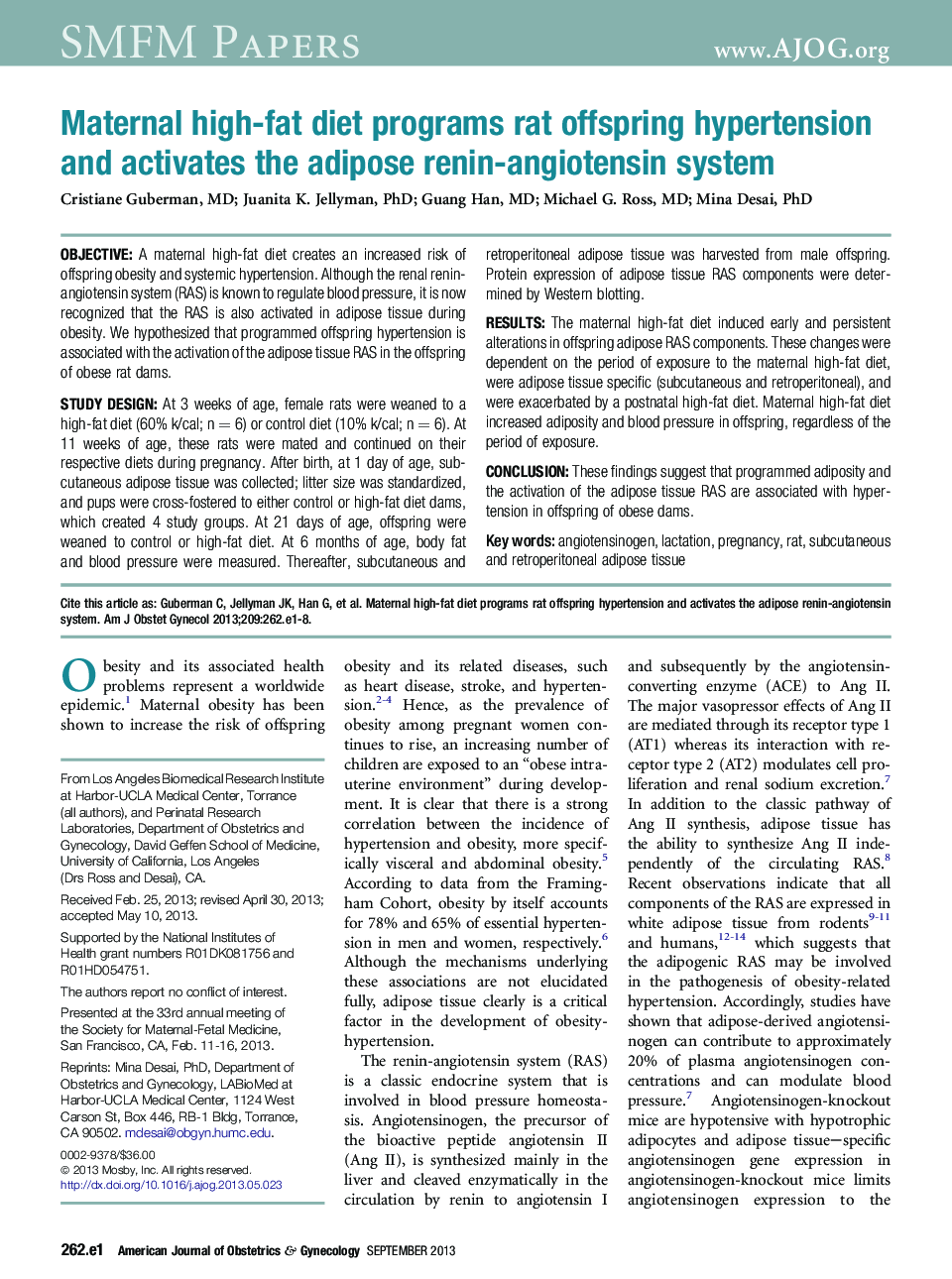| Article ID | Journal | Published Year | Pages | File Type |
|---|---|---|---|---|
| 6146133 | American Journal of Obstetrics and Gynecology | 2013 | 8 Pages |
ObjectiveA maternal high-fat diet creates an increased risk of offspring obesity and systemic hypertension. Although the renal renin-angiotensin system (RAS) is known to regulate blood pressure, it is now recognized that the RAS is also activated in adipose tissue during obesity. We hypothesized that programmed offspring hypertension is associated with the activation of the adipose tissue RAS in the offspring of obese rat dams.Study DesignAt 3 weeks of age, female rats were weaned to a high-fat diet (60% k/cal; n = 6) or control diet (10% k/cal; n = 6). At 11 weeks of age, these rats were mated and continued on their respective diets during pregnancy. After birth, at 1 day of age, subcutaneous adipose tissue was collected; litter size was standardized, and pups were cross-fostered to either control or high-fat diet dams, which created 4 study groups. At 21 days of age, offspring were weaned to control or high-fat diet. At 6 months of age, body fat and blood pressure were measured. Thereafter, subcutaneous and retroperitoneal adipose tissue was harvested from male offspring. Protein expression of adipose tissue RAS components were determined by Western blotting.ResultsThe maternal high-fat diet induced early and persistent alterations in offspring adipose RAS components. These changes were dependent on the period of exposure to the maternal high-fat diet, were adipose tissue specific (subcutaneous and retroperitoneal), and were exacerbated by a postnatal high-fat diet. Maternal high-fat diet increased adiposity and blood pressure in offspring, regardless of the period of exposure.ConclusionThese findings suggest that programmed adiposity and the activation of the adipose tissue RAS are associated with hypertension in offspring of obese dams.
